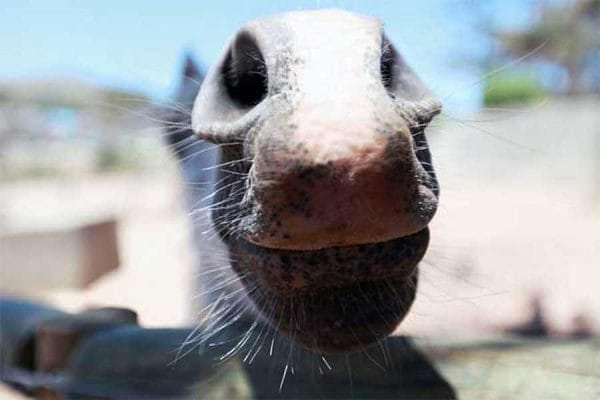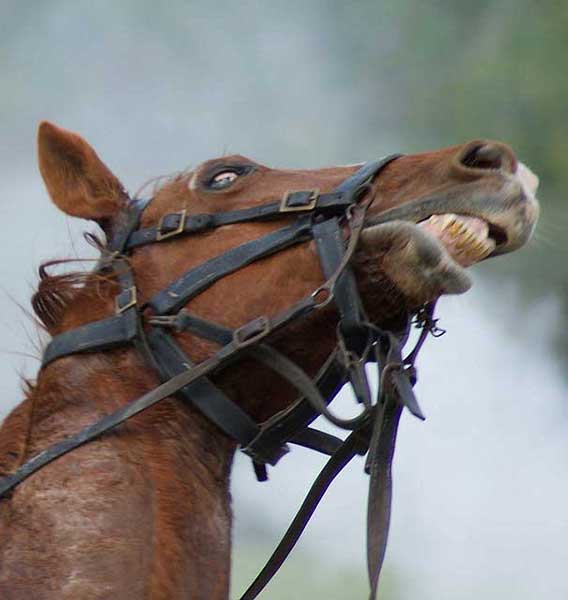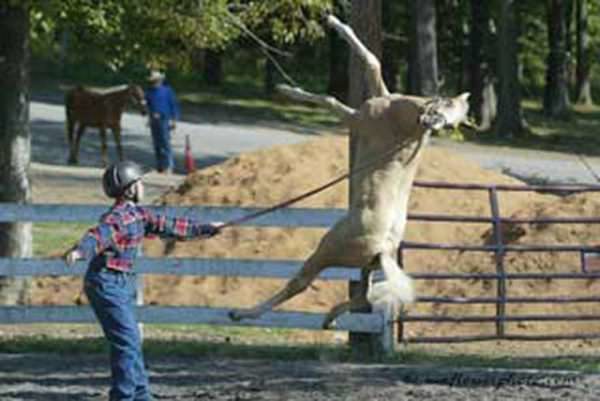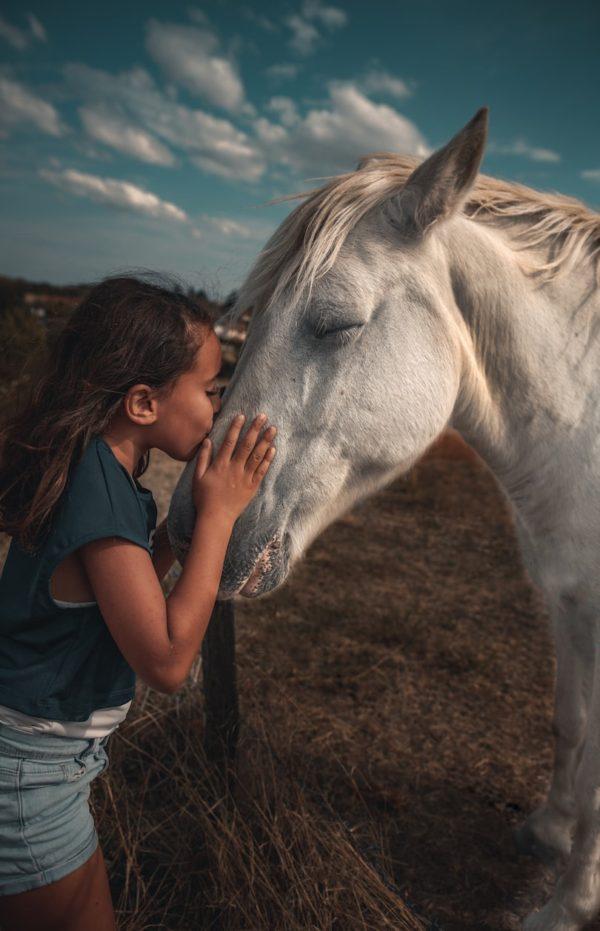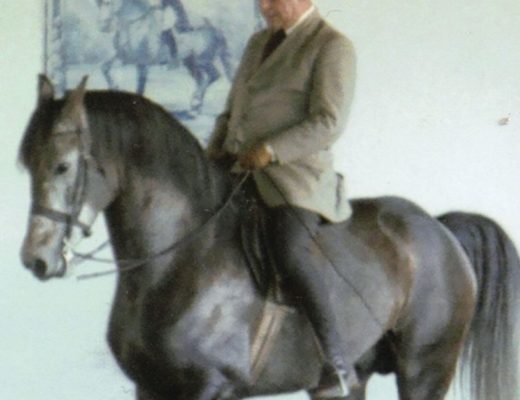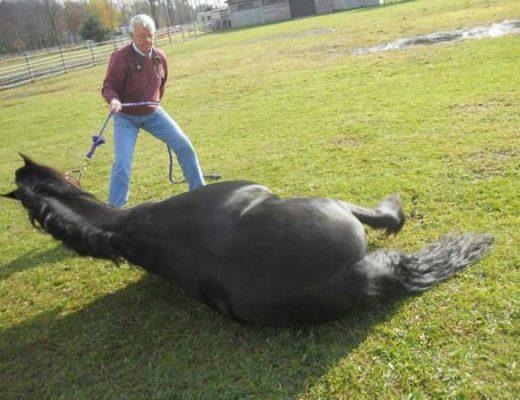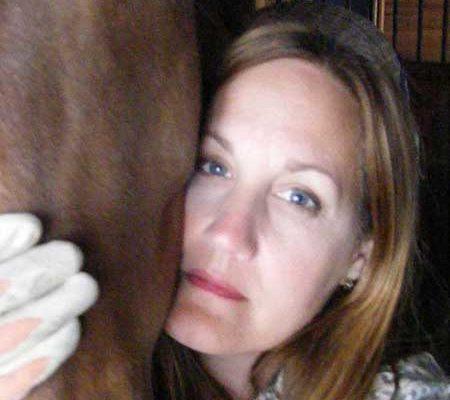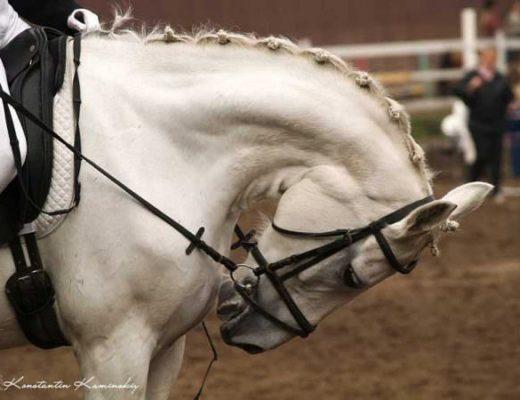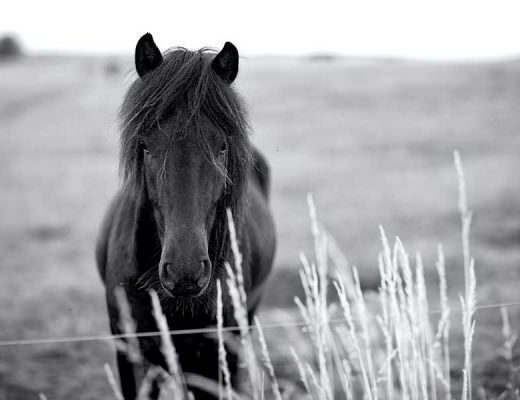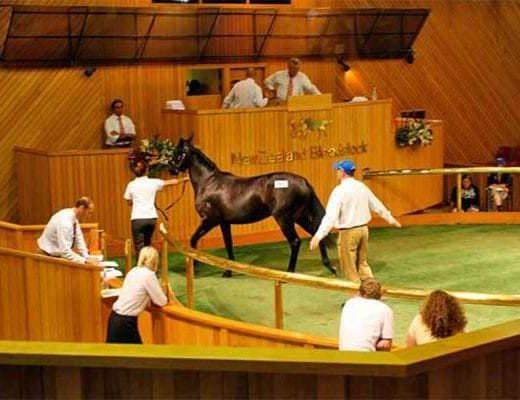I'm not perfect, and I avoid expecting perfection, although I do aim for “personal best”. As equestrians and horseback riders we give critique constantly, while often being oblivious to the critique we're receiving.
From the moment we begin handling our horse we begin a critique.
Sometimes it is more mental – we think about how he could be better, more perfect.
Other times we voice our critique to him by asking him to change, correcting or reprimanding him.
Tone can be inferred by the speed, strength and volume of our critique.
What does it look like then when the horse gives us a critique?
Being open to the criticisms our horse offers is not always easy. Much easier instead is to try “showing him who's boss,” “asserting dominance,” or finding some gimmick to make his criticisms more attractive (e.g. crank nosebands, flash nosebands, tie-downs, etc).
We need to learn how to open up to the horse's criticism though, if we want to improve as riders.
We have ears in our hands, our seat, our legs. We need only listen with them.Centered Self, Centered Horse : A Simple Guide to Horsemanship (2008)
Every time we interact with our horse there is an opportunity for mutual critique. And the horse's feedback is far more valuable than what you'll get from any instructor or trainer, as long as you learn to recognize it before the horse is literally throwing himself on the ground screaming at you.
Feedback from our peers
The horse isn't the only source for critique or feedback to improve our skills in riding – so are other riders. Making use of positive and engaged discussions can be beneficial for BOTH equestrians.
Some of the best lessons I've received were when another rider asked me to help give them feedback on their riding or training. Why? Because when you watch another person you can become aware of problems you're also dealing with even if you didn't know you were. Problem solving to help another rider works to your benefit as you're more likely to focus on that part of your own riding following the discussion.
It is this reason that I participate as frequently as my schedule allows in discussions about ideas, theories, methods, riding and training anecdotes and observations. To clarify, having a discussion is not the same as having a point of view or opinion in which I argue and defend to others, something I consider a very important point.
Truth is subjective
Sometimes truth is like the wind. You can't see it, but you can see the effect it has. Truth is also like sunrise and sunset. We see the sun come up over the eastern horizon in the morning and the disappear behind the western horizon in the evening. From the perspective of our existence on a spinning sphere, the sun appears to “rise” and “set.” In reality the sun does neither.Reality is what is, first and foremost, in our physical world. In the Lakota world reality is, for example, that the four seasons cycle in precisely the same order year after year. Reality is that lakes and rivers freeze in winter and thaw in the spring, that all living things die, that change is inevitable.
Truth is the result of the trials and errors of life, the lessons we have learned such as “Without evil, goodness would be harder to recognize,” or “The first casualty of war is truth,” or “A bird in the hand is worth two in the bush.” Some rise out of the illusions we have acquired: for example, “Good will always prevail over evil.” Truth is subjective, as in the story of the blind men and the elephant. It is also subject to change, as in “Man was not intended to fly.”
If there is a universal human weakness, it is that we want to believe there is truth because we want clear answers rather than illusions, and therefore we are vulnerable to anything that seems to be. Truth consists of two parts: that which is given and that which is accepted.
…We all have our truths, some easier to accept than others. The L train is always late; prairie gumbo is bottomless after a hard rain; one brother-in-law is a geek and the other believe he's a saint; commuting sucks; my parents hate me because I'm sixteen; my sixteen-year-old hates me because she's sixteen; a one-sided love affair is the pits; the Minnesota Vikings broke my heart — again; I can't live without my wife. But when all is said and done there is only one truth that is unwavering. It has endured and will always endure because it will stand unabashedly and without apology. That truth is death, and it is the one that is avoided and most feared by American society. But it should be the standard for truth against which all others are measured. And we will find that nothing can compare with its honesty and faithfulness.
Joseph M. Marshall III, The Lakota Way : Stories & Lessons For Living
Truth is an individual understanding, relative to our own journey in life and experiences. It is shaped by the people we surround ourselves with, the ideas and ideals presented and even the language used (i.e. positive or negative connotations).
It is for this reason that I find discussions so beneficial – we could learn to benefit by accepting someone else's truth – an idea that we were not able to spontaneously generate by ourselves because it existed outside our own personal reality.
The innocence of criticism
Critique doesn't have to be negative – when done in an unemotional and curious manner. Is a child negatively criticizing his teacher when, out of curiosity, he asks, “is there a better way to solve the problem?” That kind of curiosity serves us well when working with horses.
My truths (some of them)
- I cannot put my own whims, goals, desires or wants above the safety and well-being of my horse. For any reason.
- Riding is simply, but not easy.
- I must be willing to train myself to be as physically fit as I expect my horse to be.
- I view horse competitions, sports and fairs as having the PRIMARY goal of generating a profit vs. ensuring the horse is presented in a non-abusive manner.
- The horse slaughter industry / overbreeding / overpopulation issues are more complex, complicated and intrinsically connected than is commonly discussed right now.
- Anything can be accomplished, and I do mean anything, with the right amount of motivation and belief in yourself. Except escaping death and aging…
